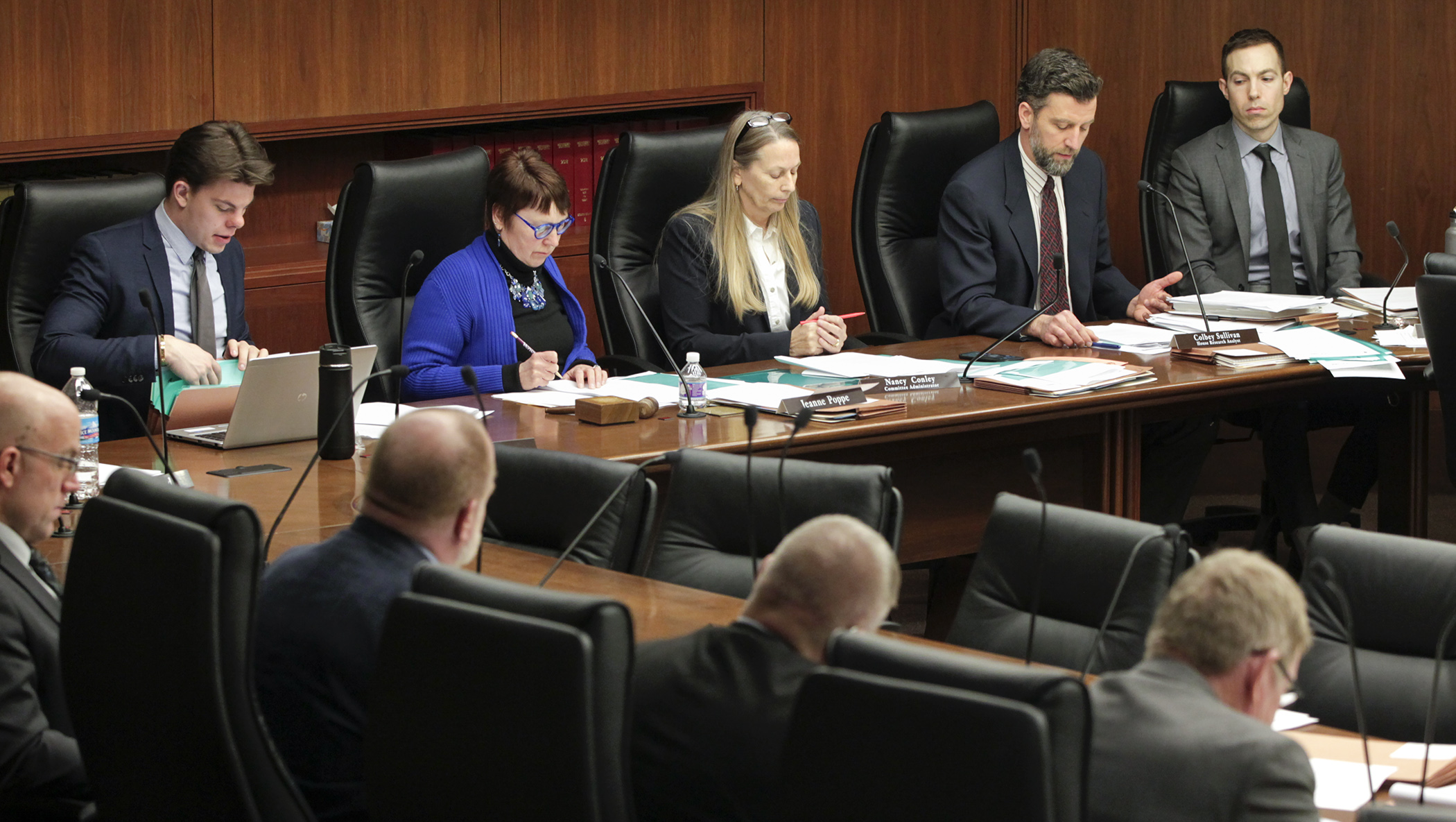Hemp, milk storage among issues addressed in omnibus agriculture policy bill

Cannabis has been finding its way into the legislative spotlight in recent weeks. The omnibus agriculture and food policy bill is no exception.
Sponsored by Rep. Jeanne Poppe (DFL-Austin), a delete-all amendment to HF1733 includes a number of provisions requested by the Department of Agriculture relating to industrial hemp, including a modification that would change the definition of industrial hemp to include all species of cannabis.
The bill was introduced to and tabled by the House Agriculture and Food Finance and Policy Division Tuesday. Amendments are expected to offered and vote taken on the bill when the division meets at 9:45 a.m. Thursday.
The lone concern came from Rep. Steve Green (R-Fosston) about inclusion of extracts in the definition of industrial hemp products.
That would not an issue, he was assured by Deputy Agriculture Commissioner Andrea Vaubel. For a cannabis product to qualify as Industrial hemp, it cannot contain concentrations of the psychoactive ingredient tetrahydrocannabinol above 0.03 percent, she said.
The Agriculture Department would also be given expedited rulemaking authority for industrial hemp. Requirements to hold a public hearing or prepare a formal Statement of Need and Reasonableness would be removed from the process.
Other notable provisions within the amended bill would:
- extend the Agricultural Fertilizer Research and Education Council funding mechanism, programming, administration and dedicated accounts through June 30, 2030;
- allow the department to approve alternative management practices used by nurseries maintaining balled and burlapped stock;
- clarify interpretation of the definition of “drug” for purposes of commercial feed law;
- create a new food-handler license for businesses offering meat and poultry processing or slaughter of meat that will not be for sale and is intended for consumption by the animal’s owner;
- expand the department’s ability to delegate non-state meat program-regulated food inspections to local governments;
- establish separate shelf-life limits for Grade A and Grade AA eggs sold at retail, allowing Grade A eggs to stay on the shelf almost 50 percent longer than Grade AA eggs before they must be removed from sale;
- amend milk storage handling requirements to ensure farm bulk tanks are in proper working order and that milk has been stored for less than 72 hours before being picked up by a hauler. The hour limit could be waived in some cases;
- modify labeling requirements for milk and dairy products produced in other states;
- require labeling for cheese produced from raw milk and aged for at least 60 days at 35 degrees or more;
- allow the Agriculture Department to issue permits, in the event of a disaster, to move food if the applicant satisfies all disease and other control measures; and
- modify the definition of “advanced biofuel” to coincide with the corresponding definition in the federal Renewable Fuels Standard, so the department can designate additional eligible advanced biofuels not yet officially identified by the EPA.
The following are selected bills that have been incorporated in part or in whole into the omnibus agriculture and food policy bill:
Related Articles
Search Session Daily
Advanced Search OptionsPriority Dailies
Ways and Means Committee OKs proposed $512 million supplemental budget on party-line vote
By Mike Cook Meeting more needs or fiscal irresponsibility is one way to sum up the differences among the two parties on a supplemental spending package a year after a $72 billion state budg...
Meeting more needs or fiscal irresponsibility is one way to sum up the differences among the two parties on a supplemental spending package a year after a $72 billion state budg...
Minnesota’s projected budget surplus balloons to $3.7 billion, but fiscal pressure still looms
By Rob Hubbard Just as Minnesota has experienced a warmer winter than usual, so has the state’s budget outlook warmed over the past few months.
On Thursday, Minnesota Management and Budget...
Just as Minnesota has experienced a warmer winter than usual, so has the state’s budget outlook warmed over the past few months.
On Thursday, Minnesota Management and Budget...